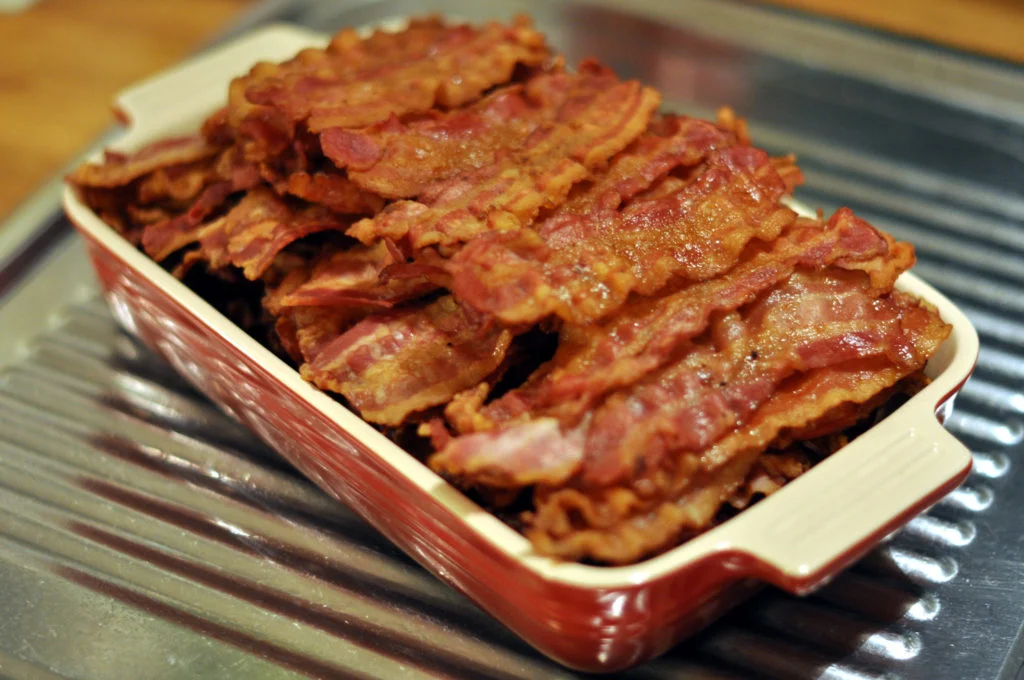Start-ups developing biological input alternatives for crops raised just over $892 million...
Court Prop 12 Ruling Likely to Cause Severe Pork Shortages and Soaring Bacon Prices

A decision that many producers around the country were dreading was recently made when the U.S. Court of Appeals for the Ninth Circuit ruled against the National Pork Producers Council (NPPC) and the American Farm Bureau Federation (AFBF) seeking to challenge Proposition 12 in California. This decision, which becomes effective January 1, 2022, will likely trigger severe shortages of pork and high prices for products such as bacon in that state.
We have been monitoring and reporting on this issue that California voters had overwhelming approved back in 2018 by a 63% margin. This law has been on hold due to legal challenges but now that the courts have ruled, the California Department of Food and Agriculture will begin enforcement in January.
Proposition 12 mandates space requirements for egg layers, veal and swine gestation crates and also bans the sale in California of eggs, pork and veal if they are the product of confinement standards that do not comply with California’s space requirements. This applies to any uncooked pork sold in the state, regardless of whether it was raised in California
According to the U.S. Humane Society, this is the world’s strictest farm animal protection law. To help defend Proposition 12, the Humane Society, as well as Animal Equality, Animal Legal Defense Fund, Animal Outlook, Compassion in World Farming USA, Farm Sanctuary and the Humane League, intervened in the lawsuit on the side of the State of California.
According to the NPPC, less than 1% of pork produced in the United States meets Proposition 12 requirements. And, California has large Latino and Asian populations that have long had cultural preferences for pork.
“With little time left to build new facilities, inseminate sows, and process offspring before January, it’s hard to see how the pork industry can adequately supply California, which consumes about 15% of all pork produced in the country,” the AP reported. The report also noted that if California suddenly lost half of the pork supply, bacon prices would skyrocket 60%, meaning a $6 package would rise to about $9.60, according to a study by the Hatamiya Group, a consulting firm hired by opponents of the state proposal. California restaurants and grocery stores use about 255 million pounds of pork a month. Still, their farms produce only 45 million pounds.
Both AFBF and NPPC share the organizations are evaluating the court’s decision and their next steps.
Jim Monroe, NPPC assistant vice president, communications, states, “We are disappointed in the court’s decision and maintain our position on Prop 12: It is a clear violation of the U.S. Constitution’s Commerce Clause.”
Travis Cushman, AFBF senior counsel for public policy, adds, “We are disappointed in the court’s ruling, especially considering it acknowledged Prop 12’s likely devastating costs to farmers and, ultimately, families across the country. We share California’s goal of ensuring animals are well cared for, but this law fails to advance that goal and we believe it violates the Commerce Clause.”
NPPC warned that compliance with Proposition 12 would cost farmers millions of dollars and consequently has the potential to drive small hog farmers out of business and undermine the global competitiveness of the U.S. pork industry.
In Iowa, which raises about one-third of the nation's hogs, farmer Dwight Mogler estimates the changes would cost him $3 million and allow room for 250 pigs in a space that now holds 300. To afford the expense, Mogler said, he’d need to earn an extra $20 per pig and so far, processors are offering far less. “The question to us is, if we do these changes, what is the next change going to be in the rules two years, three years or five years ahead?” Mogler asked.
The California rules also create a challenge for slaughterhouses, which now may send different cuts of a single hog to locations around the nation and to other countries. Processors will need to design new systems to track California-compliant hogs and separate those premium cuts from standard pork that can serve the rest of the country.
The sale of pork in California that does not comply with Proposition 12 will be considered a criminal offense punishable by a $1,000 fine and 180 days in jail. The violation also exposes the seller to a civil action for damages or injunctive relief under California Business and Professional Code section 17200.
EDITOR’S TAKE:
This may be a significant win for the Humane Society, but it could be a nightmare for California consumers and pork producers. California consumers are likely to experience sticker shock when shopping for pork after January 1, 2022, when Proposition 12 takes effect.
It is highly unlikely that pork production in that state will ever be sufficient to meet current demand. At the same time, this will be a tough economic decision for pork producers in other states to swallow if they consider all the costs of compliance now and on-going. What also makes this ruling particularly challenging is the changes required to comply are built on consumers' perceptions of best animal care. The science of animal care is being completely cast aside, and animals will actually suffer more because of these production requirements. Research has shown that when given a choice, sows prefer remaining in stalls rather than moving freely in an open pen setting. The American Association of Swine Veterinarians supports the use of gestation stalls during a sow’s pregnancy to minimize aggression and competition among sows. Placing sows in stalls also allows for the observation of individual animals for well-being assessment.
Only once the law takes effect will we have a true picture of what it really means, but our best guess is it will be a long road to producing enough pork to satisfy California’s voracious appetite. After all, they currently consume nearly 15% of all pork produced in the U.S.








